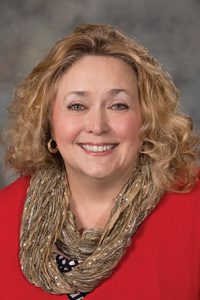Bill would create new interstate compact
A bill that would create the Audiology and Speech-Language Pathology Interstate Compact was discussed Jan. 22 in a Health and Human Services Committee hearing.

LB753, introduced by Bellevue Sen. Carol Blood, would allow audiologists and speech-language pathologists who are licensed in a member state of the compact to practice in another member state.
To join the compact, a state must:
• conduct a criminal background check of all licensure applicants, and report the results to members of the compact;
• determine if an applicant has held a license in another state;
• require an applicant to hold a license in that state; and
• determine if an applicant has earned necessary college degrees and passed required exams.
States also would be able to investigate wrongdoing and terminate an audiologist’s or speech-language pathologist’s license, Blood said, and nine other states would need to join Nebraska for the compact to take effect.
Blood said currently there are nine audiologists and 67 speech-language pathologists per 100,000 Nebraskans and that her bill would increase access to these specialists and promote expanded use of telehealth.
“This bill is also on the yearly policy priority list that we receive from the [U.S.] Department of Defense,” she said. “This will help our state to continue on the path to become a leader on military friendly policy.”
Blood added that she does not expect the compact to cost the state money, noting that the last two interstate compacts Nebraska entered required either minimal or no cost.
Janet Seelhoff, Executive Director of the Nebraska Speech-Language-Hearing Association, testified in support of LB753. She said the bill would reduce regulatory barriers while still protecting the public.
“We support this legislation as a measure to make it easier for audiologists and speech-language pathologists to practice in Nebraska,” Seelhoff said. “There are shortages of providers, particularly in the rural areas of the state.”
Darrell Klein of the state Division of Public Health spoke in opposition to LB753.
Klein said that as the first state to adopt the compact, Nebraska would be committing to an unknown, adding that the state Department of Health and Human Services would not be able to implement the bill as written and would require significant changes.
“We would be unable to determine the costs of joining,” Klein said, “and what the impact would be on the department.”
The committee took no immediate action on the bill.

